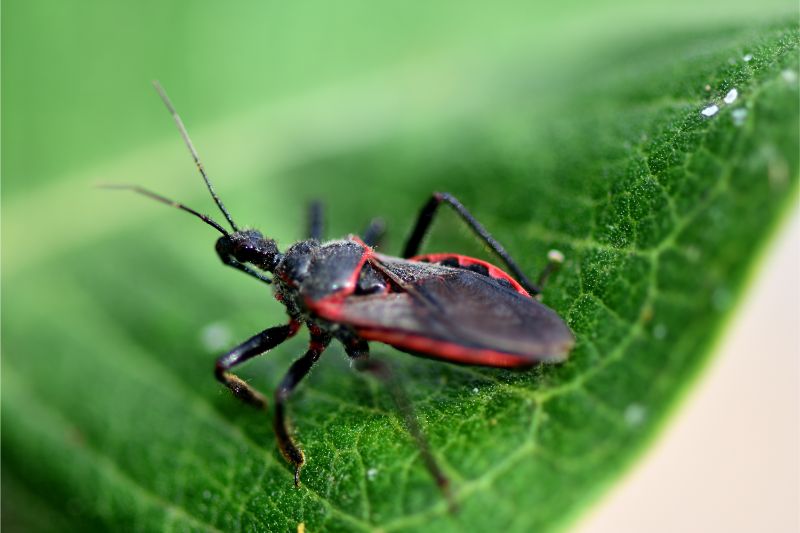Blog
Kiss of Death: Chagas Disease in Dogs

Texans are no strangers to bugs. Big, small, and in between, they are a part of life here in the south. Many of them are harmless, but others can be the bearers of serious trouble.
Kissing, or assassin, bugs are one of those critters that we want pet owners to worry about. The bite of this insect can carry an infection that is one to avoid. Chagas Disease in dogs is something that Ten West Bird & Animal Hospital wants Texan pet owners should know about.
Continue…All Going Swimmingly: Swimming Safety for Dogs

We are excited to dive into summer – into lakes, rivers, and pools, that is. And, we know quite a few dogs who are just as excited as we are! Although we may think of them as natural swimmers, the truth is that not all dogs know how to swim.
Whether your dog already knows how to swim or you’re not sure if she’s a water dog, every dog can benefit from a few swimming lessons. So as we get closer to summer, Ten West Bird and Animal Hospital is focusing on swimming safety for dogs!
Continue…What You Need to Know About Snake Safety and Pets
 A snake is something we all hope our pets will never encounter, but, unfortunately in Texas, most of us have run across a snake or two. Snake bites are painful and some are also extremely harmful to our pets.
A snake is something we all hope our pets will never encounter, but, unfortunately in Texas, most of us have run across a snake or two. Snake bites are painful and some are also extremely harmful to our pets.
With over 105 snake species in Texas, it’s important to understand which snakes are a risk, where they tend to live, and how to help your pet avoid an encounter. That’s why Ten West Bird and Animal Hospital has compiled a list of things to watch for when it comes to snake safety and pets.
Friend or Foe?
What’s slithering around in our neck of the woods? In Texas, we really only need to know about the two types of venomous snakes that live here:
Pit vipers – Pit vipers are venomous snakes that have an opening on each side of the head, between the eye and the nostril. There are three types of pit vipers in Texas: copperheads, cottonmouths (water moccasins), and rattlesnakes (Texas has 8 subspecies of rattlesnake).
Coral snakes – Coral snakes are highly poisonous, but also shyer than pit vipers. You can recognize them by their red, yellow, and black bands (the yellow and red bands always touch). Continue…
